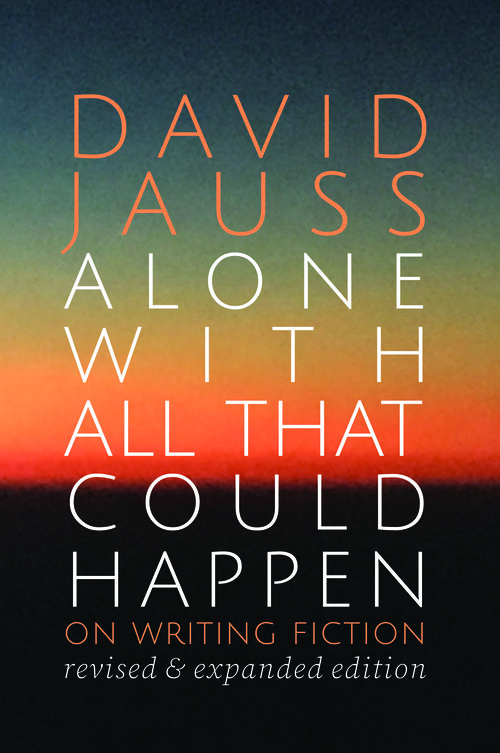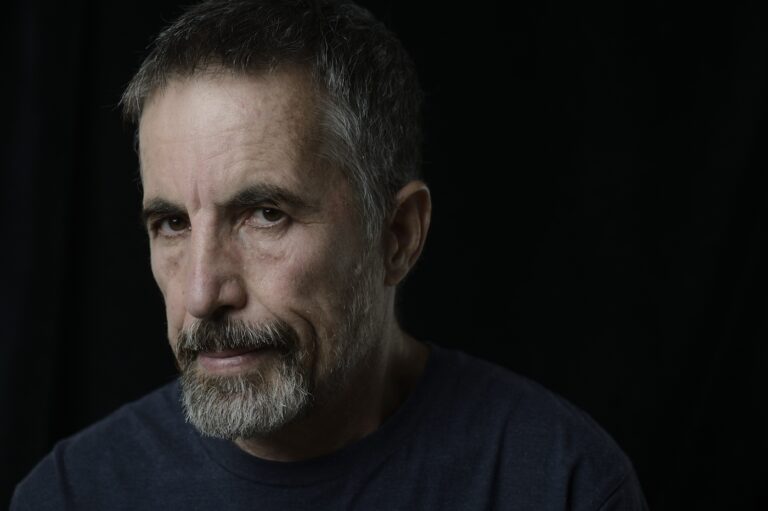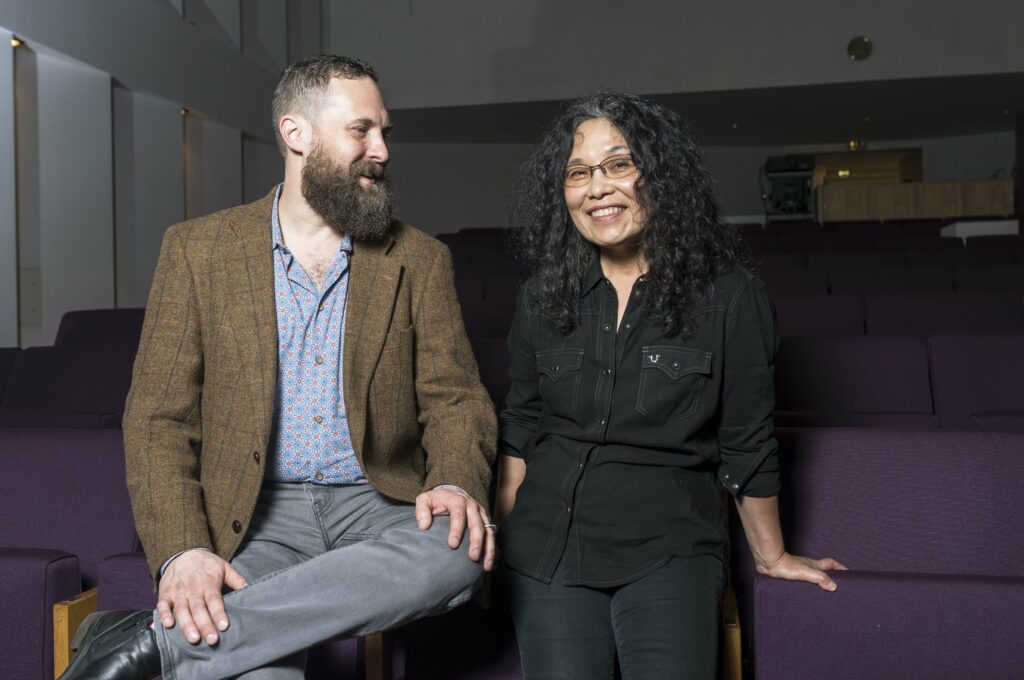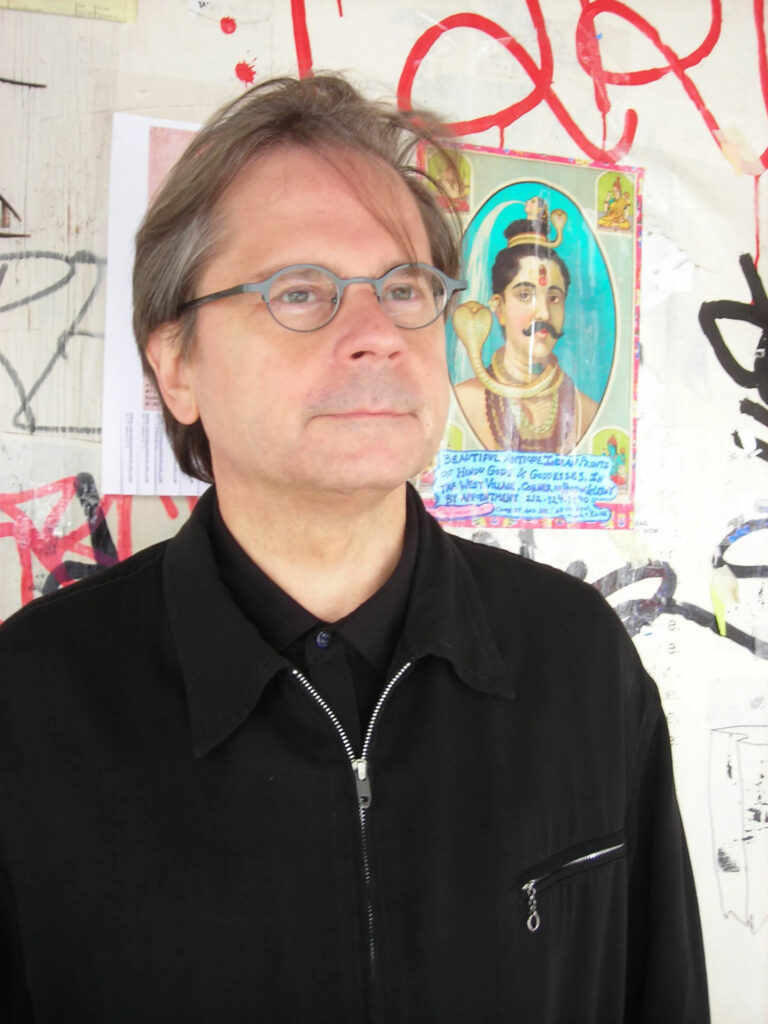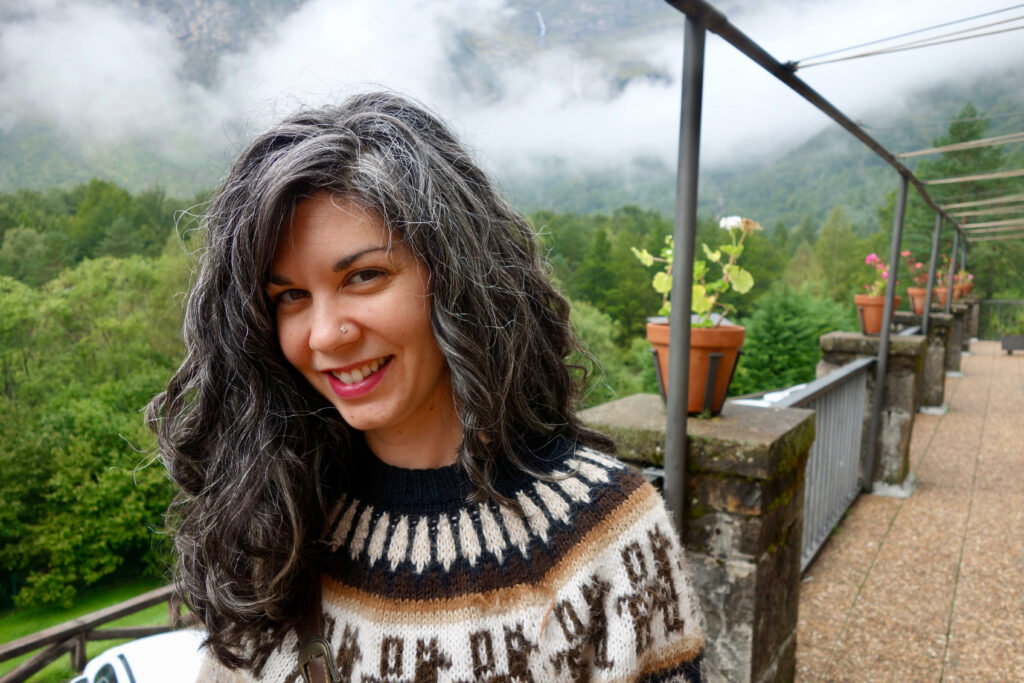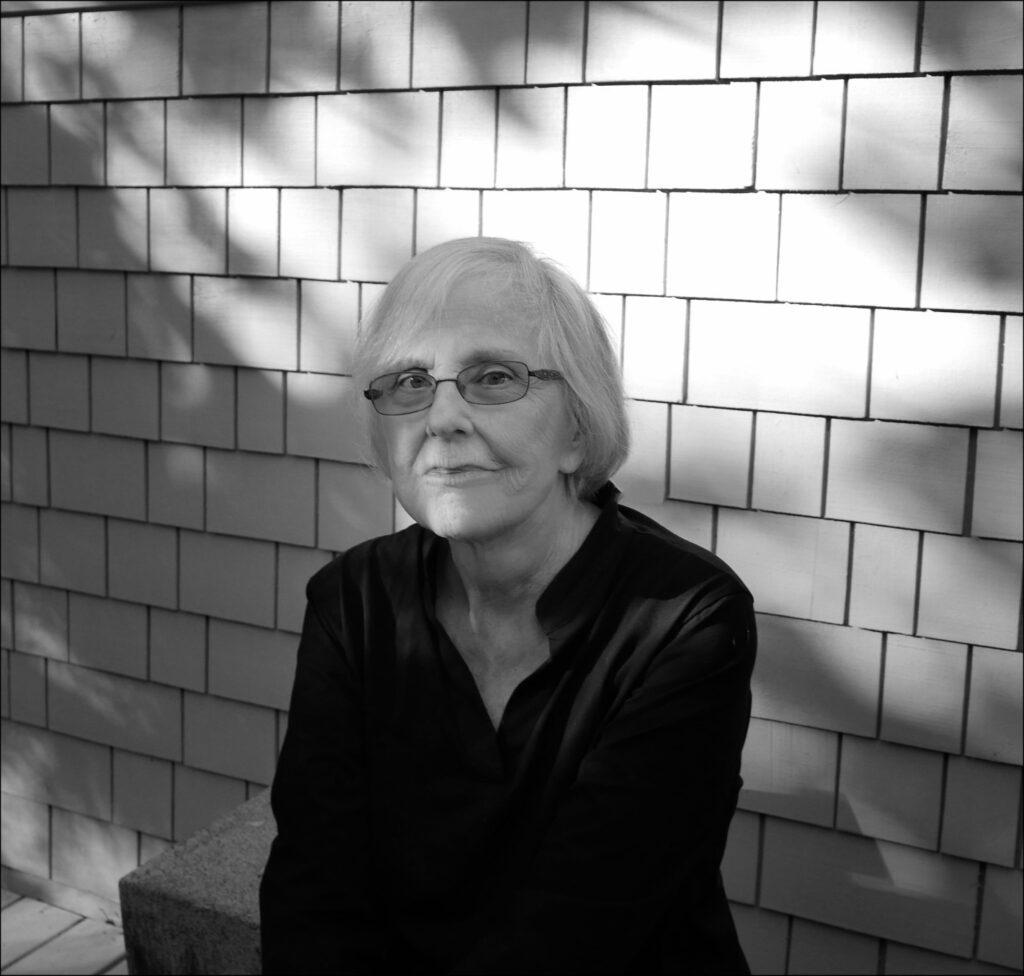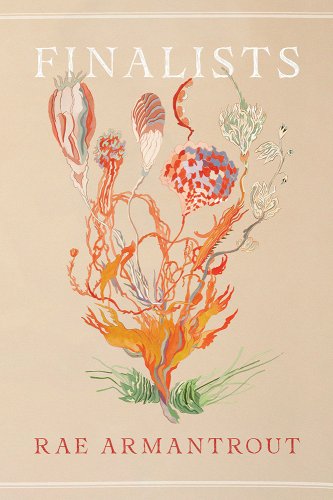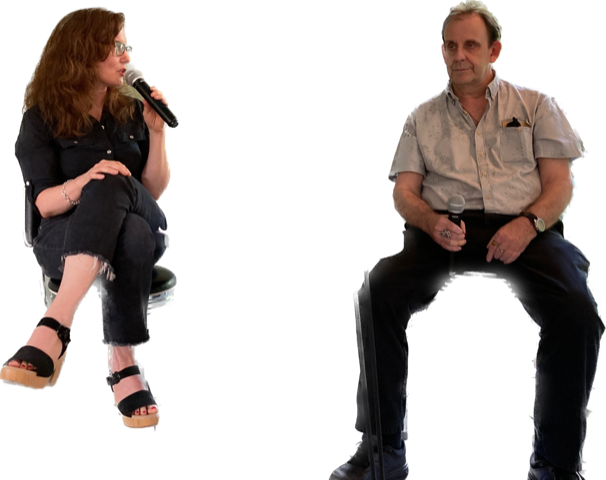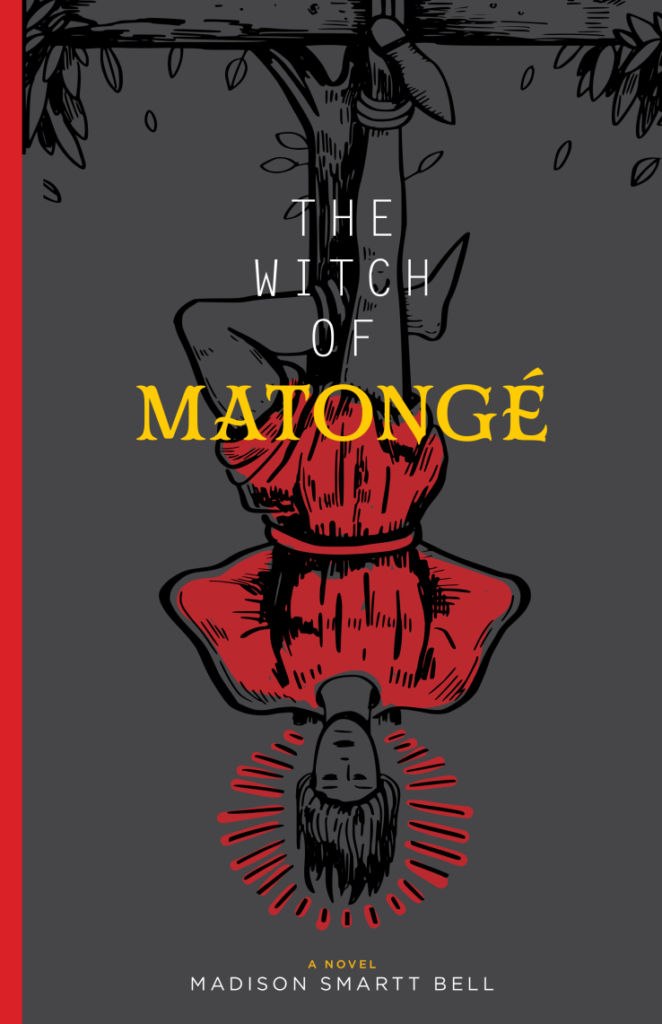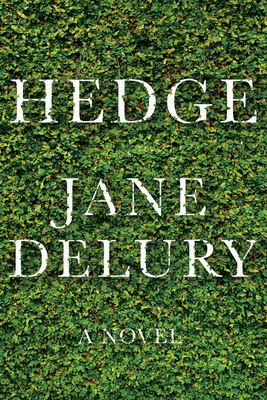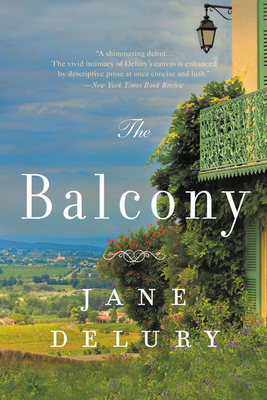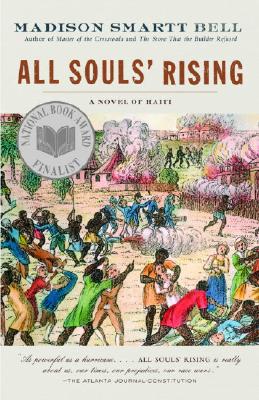by Karen Noll
Hiromi Itō has been writing and publishing poetry in Japan since the 1970s, and two collections published by Action Books in English translation, Killing Kanoko (2009) and Wild Grass on the Riverbank (2015), have garnered Itō widespread acclaim for her fiercely feminist voice. Now joining these releases available in English is The Thorn Puller (Stone Bridge Press, $18.95), an episodic meditation on caring for aging parents, a spouse, three daughters, friends, and oneself—in two cultures, in two languages, and on two continents (Itō has lived in both Japan and California). The Thorn Puller is marketed as poetry in Japan, although its U.S. publisher is calling it a novel, and some reviews in Japanese have focused on it as memoir; this blurring of genres perhaps speaks to the heart of Itō’s writing.
All three of Itō’s books published in English to date have been translated by Jeffrey Angles, who teaches in the Department of World Languages and Literatures at Western Michigan University. Much acclaimed for his many translations of Japanese literature, he is also a poet who writes in Japanese, and in 2017 became the first non-native writer to win the prestigious Yomiuri Prize in poetry for his collection Watashi no hizukehenkosen (“My International Date Line”).
The following conversation was conducted prior to an event featuring Itō and Angles at the University of Chicago.
KN: Itō-san, your writing is full of humor—sometimes witty, sometimes biting and sarcastic, sometimes warm, and sometimes just silly. Its aim seems to be to humble us in our humanity, not to blame or shame. How do you approach writing humor?
HI: Humor is very difficult. When I am writing a rough draft it is always very serious, and I try to dig out all of my pain: The painful part is the part I want to write. But, it’s also a kind of fiction. It is a very artificial process to make literature. I read the rough draft and then try to step out of it to see reality and dig out a space where I might add something to make it humorous. This technique—me stepping out to see reality then stepping back in to create a laugh—is actually a very good process to cure myself. This is the process I was using throughout my writing in The Thorn Puller.
In my earlier work, I didn’t really do this, but I did for this book because I was getting into rakugo, a type of Japanese comedy performance from the Edo Period (1603-1867) that features a single storyteller with one paper fan and one piece of cloth sitting on a large cushion telling a long comical story. My father had given me a series of cassette tapes with rakugo performances, and I used to listen to the tapes in my car. At that time my reality was quite harsh and I wanted to shut my mind down—I didn’t want to do anything. I needed to force myself to laugh.
Another reason I listened to the tapes was that I was interested in the narratives. You can get good books with old rakugo performances. There is a distinct Tokyo voice and dialect in some texts which also offer distinct Edo-Period tastes and classical topics—and I like that kind of stuff. Also, descriptions about the weather and nature are included. It’s beautiful. And since the spoken word was transcribed by a no-name someone who was not the performer, there is an exact presentation of every word, even including stuff like stuttering or repetition, so the transcriber had to figure out how to use written language for those sounds. You can imagine the actual sound and actual dialect, and you feel that somebody’s talking. I read it as beautiful literature. These transcriptions contributed a lot to my style.
Right after I was listening to those tapes, I published a book called The Disappointments of Women, which has all kinds of women’s voices because it is constructed as an advice column—somebody asks me about a problem and I answer it in rakugo style using Tokyo dialect. I am not a Tokyo dialect speaker, but I use the sounds and try to make it as funny as possible. One of my pieces in this series was used as the sample in a translation contest because it is so difficult to translate! The guy who won that contest is trying to translate the whole book into English now.
The tradition of comedy in Japan begins with kyogen in the 15th century, and then came sekkyō-bushi and then rakugo after that. These are comedy performances that were on the street or sometimes on a stage, but they were also related to Buddhism, so it’s all a kind of Buddhist literature.
KN: Jeffrey, can you speak to your work in translating Itō-san’s humor—especially in working with word play and onomatopoeia? I get the sense you have fun with it.
JA: It’s fun, but it’s also hard. When I did my first draft of The Thorn Puller and showed it to people, it wasn’t funny yet—readers said it was so, so serious. They didn’t understand the humor. So I did exactly the same thing you said you did, Hiromi, I went back through and tried to see where I could add laughter. I thought, okay, this is funny in the Japanese, why is it not funny in my English? Sometimes I had to adjust the language to be more casual and slangy. Sometimes I added a sentence or two. Or sometimes, if I couldn’t figure out exactly the right way to make a certain passage funny, I could make the passage right next to it funny. Kind of a zero-sum game.
Along with dialect, humor is one of the most difficult things to translate. Especially if you’ve got a scholar’s mind and you’re trying to get exactly the right nuance of the Japanese, which can become a problem.
HI: Yes, it is very difficult. I translated the Dr. Seuss books The Cat in the Hat and Oh, the Places You’ll Go! and it was really difficult to put his humor into Japanese. My translations didn’t sell well. Laughter is so different in different cultures. In Miyazaki’s film Spirited Away I remember being so surprised that the character of No Face burped in the English version. He did not burp in the Japanese version, but I guess that a burp is something humorous that Americans like.
JA: Humor is important in your work because it makes difficult subjects so much more approachable and human. As I was working on The Thorn Puller my own mother had an accident that left her no longer able to walk well, so I began to feel the world of this book; being able to work on it and have a little humor about the subject of caring for your parents was really helpful for me as I was going through my own problems. In Japan there is a genre of books called iyashi no bungaku, which translates to the literature of healing—I sort of hate the sappiness of most books in this genre, but there is something in your writing that is really good iyashi no bungaku, and that is one of the appeals for readers.
HI: Yes, but if my books were genuinely iyashi no bungaku, I could sell more. I add a lot of other things, I write too closely or too deeply or too much, so I don’t sell that well—but I can’t stop myself!
KN: You have written a lot about the idea of home; for example, the character Itō in The Thorn Puller, who grew up in Tokyo, begins to use the phrase “going there” instead of “going home” when she refers to Tokyo. How do you find yourself thinking about “ home” in your life as well as the lives of your daughters and parents and husband?
HI: I am now living in Japan. When I was living in California I was always thinking, “when I go home…” and home meant Japan. But since I moved back to Japan, I am feeling, almost every day, “when I go home…” about California. It’s both. Both directions.
JA: So for you, home is always the other place.
HI: I don’t want to say that, you know. But I have to admit that I always feel uncomfortable in the place I live “now.” My most recent book in Japan is about seppuku, and in it I strongly push the notion of home. It’s a kind of fiction in which my husband is dying in a hospital in California and says “I want to go home”; at the same time, my hometown in Kumamoto has a big earthquake, so as he is dying, everything about my home in Japan has collapsed. So maybe home is always “not here” and always has to be collapsed.
JA: The thing I think is interesting about your writing is that when home is that other place, it is a very productive place—you produce so much writing in which your characters are trying to figure out how to live in the world because they don’t feel at home. I just finished retranslating your novella “House Plant” to publish together with an older novella of yours, and this pairing will be very much about home—where is it, how we find it—and how difficult that concept of home can be for a new immigrant to the U.S. It’s a beautiful exploration of this question.
KN: The verbs you use when writing about plants work so organically that it hardly seems like “personification.” Plants simply are people: “green clumps growing restless”; “branches began to laugh”; “camphor trees had no ill intent”; and so on. A walk in the woods for you must be more like a busy train station than like quiet meditation. And plants are also immigrants in your writing—can you explain? Do plants “go there” or “go home”?
HI: Since I was a kid, I was interested in plants—especially the ones that came from outside of Japan. The reason was very simple: In the place I grew up there was nothing there. It was asphalt and concrete, a factory area in Tokyo. The air pollution was really serious at that time, so we couldn’t enjoy nature. I only found nature alongside the street in the weeds, and I learned in a kid’s encyclopedia of plants that most of the weeds came from outside of Japan. I really liked reading that encyclopedia. The Japanese word used in that book was kika shokubutsu, which is the same Japanese word—kika— the noun that means “naturalization” or “taking on a new nationality.” In other words, the weeds are naturalized citizens that take the nationality of a place they were not born in. Those naturalized plants became so familiar to me.
In my book Wild Grass on the Riverbank, the main characters in the poems are plants, so at the end of the book I wrote a glossary for the names of the plants. In Japan there is a dictionary for writing haiku that we call saijiki—it’s basically a dictionary of plants and animals and seasons and stars and weather, but its main purpose is connected to writing poetry, to honor the words that connect us to the earth and to our culture. Since I was a child I have absolutely loved this book. I wasn’t interested in haiku at all; I just loved the words in the book. It was the inspiration for my book: The Japanese title is Kawara Arekusa, and when you say Arekusa it sounds like the name “Alexa,” so Jeffrey used the name as a character in the book. And I played with these sounds to create words that sound like Latin plant names—kawaransis.
I was always interested in writing about the foreign plants that had settled in Japan. Then, after living in California, when I returned to Japan the plants looked totally different than before. I realized that all these plants are living as migrants, and I was living in California just like those plants. They were propagating too much, so the Japanese people wanted to get rid of them. But I was doing the same thing, having kids and propagating in a foreign country.
JA: I have become fascinated with weeds because of you, Hiromi! I am actually going to teach a class about weeds soon.
HI: Once I saw goldenrod in Michigan and it was so small—amazing. In Japan it was huge! It was taking all the nutrition from the soil, so Japanese local plants couldn’t grow. But sometime later, the goldenrod began diminishing, and Japanese plants got back the power.
As I have studied plants, I have seen that they have a system for living and dying that is not like the system of living and dying for humans. Plants can show us how to think in new ways when we are thinking about death. And so can the stars—but that is another, totally different system of living and dying.
JA: Like plants, stars will come apart and recombine in new fashions and then take on a new life. Where is the beginning and end of a star? Where is the beginning and end of a plant? You can’t draw a clear line.
HI: Don’t you think Buddhism is like that?
JA: Yes, absolutely. I am always thinking about this. It is my obsession now.
HI: Stars? Me too!
KN: Your writing explores many aspects of Buddhism. Can you speak to how Buddhism creates meaning for you? And Shinto? And animism?
HI: I am interested in all of the branches of Buddhism, because of their poetry—I don’t care about the devotion part. I really don’t. I’m just interested in the sutras—the traditional texts, which are full of poetry and philosophy.
JA: Hiromi has been doing translations of Buddhist sutras, recreating them as contemporary Japanese poetry. When the sutras are written in Japanese, they are actually written in classical Chinese, but given the Japanese reading—so they’re in easy-to-understand daily language. Hiromi has been translating them into very contemporary language, and then also writing essays about them. She has quite a few books now like this and they’re really, really interesting. I’m hoping to find a publisher who be interested in publishing an English version with me.
HI: One is a translation of Shinran, the 13th-century priest who is considered the founder of Shin Buddhism. What he was doing in his writings is very similar to when Martin Luther translated the New Testament from Greek into German—bringing the text to the people. Shin Buddhism is one of the biggest sects in Japan.
JA: In The Thorn Puller, the central image is the Togenuki Jizō (Thorn-Pulling Bodhisattva Jizō) located in Sugamo, a neighborhood of Tokyo near where Hiromi grew up. It is clear that you are interested in the cultural history and cultural associations of Buddhist places and Buddhist ideas and what they mean to individuals. One of the things I found so interesting in The Thorn Puller was that many generations of the narrator’s family visit Sugamo Temple to pray, but it is really the connection between the women of different generations that makes that experience so important. I thought a lot about this as I was translating it—how faith and a desire for some release from suffering are so important, especially in the lives of women of the working classes.
HI: And then Shinto, poetry-wise, is very ecological. I like these texts so much, but everything is written in very old Japanese! When I first read Native American oral tradition translated into Japanese, I thought it is very similar to Shinto poetry translated into modern Japanese; if I translated a Shinto text using neutral words in modern Japanese, it would sound like Native American poetry. That’s how I got into Native American oral tradition. Jerome Rothenberg’s books actually led me to California.
KN: When you refer to Shinto words, which texts are you referring to?
HI: Oh, any kind of text like the Kojiki, which is a collection of ancient Japanese myths.
JA: It was the first book ever written in the Japanese language, in the 8th century.
HI: It was written in Chinese characters because they hadn’t developed Japanese characters yet, but the grammar and words are Japanese. And in it there are lots of songs. They are singing all the time, and it is these songs that sound very similar to Native American oral tradition. And there are a lot of plants in these tales, so much nature. Maybe you think that Shinto is a religion, but I doubt it. Religion for me is not that kind of stuff. If Christianity is a religion, Shinto is totally different. It’s another thing entirely.
JA: It’s more a way of being in the world.
HI: And Shinto was kind of polluted during World War II. I cannot grasp it. But for The Thorn Puller I was more interested in the medieval texts called sekkyō-bushi that come from a performance art, which was of course first an oral tradition. I wanted to shape my book like a sekkyō-bushi so I needed religion, I needed women who work hard, I needed men who are really weak.
In Japanese houses there are small Shinto shrines for praying to the god of fire or the god of the house, and there are also small Buddhist altars in houses for praying to ancestors. So it may seem like the Japanese have a sense of devotion—but I doubt it. The role of ancestors is very strong, and if I do something wrong it is a reflection on my life. You can’t do anything wrong because the ancestors are watching. Some of this relates to Buddhism, but the true Japanese feeling of devotion is far away from Buddha himself. It is more of a mix of ancestor worship and nature worship—how do you call it?—animism.
I was very interested in religion when I wrote The Thorn Puller, and when I began to shape the plot, I based it on sekkyō-bushi. Those stories have prescribed components—religion, women who work hard, men who are really weak, almost zombies—so I thought about who could be the main character, and who is a woman who works hard, and I realized it could be me! Then I thought about what the religion component could be, and I decided on Sugamo—the temple of the thorn-pulling Jizō—because I was so familiar with that place. So in the beginning I wasn’t interested in writing about religion other than as a component of sekkyō-bushi. More recently I have become more interested in Buddhism, but for this book my interest was more anthropology than religion. When I had children, I became very interested in anthropology. I studied a lot.
JA: Yes, definitely. You hone in on what people actually do in their rituals. I think the passage when the main character is reflecting, “What am I actually praying to when I go to Sugamo?” and she thinks, “Maybe the most important thing is the smoke”—the smoke that carries one’s wishes to the gods—is so interesting.
HI: Yes, I was happy with that part, too. I thought, “I’ve got it. Smoke!” Temple smoke and also my father trying to quit smoking, and my partner being completely disgusted by placing religious meaning on something as mundane as smoke. Of course, these conversations with my father and partner never happened. It’s fiction. But it is in character.
KN: Are you okay with the designation of this book as fiction?
HI: It is fiction. Poetry or a novel.
KN: But there are numerous ways the content overlaps with your life.
HI: Yes, yes, of course. Some Japanese readers think these are essays. Even a reviewer referred to the book as “essay work.” I do include elements that make them think in this way, so it’s my fault, actually.
JA: Well, it is true that the character’s name is Hiromi Itō.
HI: I have been writing essays as well over the years—about motherhood and pregnancy and food and how to grow plants—and most of my readers are women of my generation or a little younger. These essays are published in popular women’s magazines, but I was struggling with writing novels; I tried and tried but couldn’t do it. I kept thinking that a novel had to be fictional and not relate to me, but I kept coming back to stories that I experienced, that I was in—like an I-novel—although I hate the Japanese I-novel style. I was wondering how I could write fiction, and my solution was to accept that I am very good at writing about the teensy-weensy stuff in my life. I wanted to write honestly, “I think…I do…” so that my reader would think “We think…we do…” and in this way, the “I” was very important in the creation of a “we” so that all women can think, “Oh, this is my story.” I knew that I could do that in an essay, so why not in fiction? And I have been good at writing poetry as well, so why not put it all together—essay writing, poetry writing, and making a new kind of fiction.
JA: Now that there are more reviews available for The Thorn Puller, almost every reviewer says how interesting it is that suddenly, even in the middle of a sentence, the prose turns into poetry. It’s like the boundaries between genres falls in the book, and isn’t that fresh and new and exciting?
HI: Yes, but obviously this is not good in the bookstore! It is not good for a publisher. They want to pigeonhole things.
JA: I had lots of discussion with the publisher about what to put on the back cover, and we settled on “Fiction, World Literature, Japan.”
HI: A very famous novelist, Yūko Tsushima (the daughter of Osamu Dazai), wrote in a magazine, “This is NOT a novel!” So the publisher decided to call it “Epic Poetry,” but then in a later version the publisher did want it in the “Novel” section and changed it. Still some Japanese reviewers call The Thorn Puller essays, and one critic told me it is definitely an I-novel. In Japan we have a long, long tradition of the I-novel, so it is natural to use that category for this book.
I think that to avoid the problem of genre altogether, I leaned into oral narratives, which are very much like poetry. Really, when I think of ancient Japanese literary forms that I am drawn to—rakugo, sekkyō-bushi, Noh, bunraku—they all have narrative, poetry, music, and prose. This is what I love!
KN: You are referred to as a trailblazer for women writers in Japan, many of whom are blazing their own fires now in publishing, reaching audiences in Japan and internationally—Mieko Kawakami, Miri Yū, Yōko Ogawa, Kikuko Tsumura, Hiroko Oyamada, Sayaka Murata, Hiromi Kawakami, Yūko Tsushima, and others. Who among them are you reading and what do you enjoy about their work?
JA: Right now, the most interesting novelists and the most interesting poets in Japan are women. Overwhelmingly. This is a Golden Age for women’s writing.
HI: I am embarrassed to say that I don’t feel well-read enough to comment on these women writers. When I moved to California, I stopped reading contemporary literature. I spend all my time reading classical and ancient Japanese texts. Honestly, you might not even want to print my answer to this question, it sounds arrogant. But if you ask me about writers who are older than me, like Michiko Ishimure or Jakuchō Setouchi or Yūko Tsushima, I am more eager to open my mouth. I was very influenced by Taeko Tomioka—I loved her dryness with words, and I learned feminism from her—and of course Chizuko Ueno, the feminist sociologist. We are really close, and I admire her very much. But I began experiencing feminism before Chizuko became famous, back when we called it “women’s lib.”
I have been asked to judge several poetry contests, and I have noticed a big difference between men’s poetry and women’s poetry. I tend to choose men’s poetry, which is kind of all over the place. Women tend to write about their own worlds—their bodies, their relationships, society—while men write about the universe. So in my judging and also in my teaching, I have come to realize that gender distinctions in poetry are very real. I know that when I first started publishing poetry in the 1980s, I became a kind of star because I was writing about women’s bodies in a new and radical way. After that, women poets began to bloom. But now I am not drawn to that. Reading women’s poetry is like driving fifty kilometers per hour around town, whereas reading men’s poetry is like driving 200 on the freeway—suddenly the steering goes out and you wonder how you’re going to control this thing that’s out of control. That’s the kind of literature I want to write!
KN: Jeffrey, you were in Japan researching male bodies and love when you first fell in love with Itō-san’s work, which was very much about the female body. Can you speak to that initial attraction? How has your interest grown or changed over the years you have worked with her?
JA: Yes, I was in Japan doing research for my dissertation about representations of male-male love in modernist Japanese literature of the 1910s, ’20s, and ’30s. So I was reading men who were writing about men, about their love for fellow men. I am gay, and I wanted to know more about gay literary history, but I found all the women in the work I was reading were depicted as boring, superficial, stupid characters who were just foils for the men. So when I started reading Hiromi’s book I Am Anjuhimeko, which offered the voices of ancient suffering through female mediums and shamanesses, it was completely amazing because it was unlike any book I had ever read before, in English or in Japanese.
I was also trained in gender studies, so I wanted to better understand and be involved with the real lives and real voices of women. My work translating Hiromi became the antidote to the sickness that was given to me by my own dissertation project. Then, as we got to know each other working on the translations, we became close friends, and I got to know her voice and how she sounds in English. I got to know her worldview, which in many ways is very similar to mine. At first I approached her work as “women’s literature,” but now to me it’s just “literature.” She has changed my thinking about the world a lot.
HI: I feel so lucky having this kind of relationship with a translator. We are family friends.
JA: It is a rare feeling. I have translated a lot of other writers, but my relationship with Hiromi is rare.
KN: I would like to ask you both about the poet Chūya Nakahara. His work seems like an important influence on you both—certainly in The Thorn Puller, but it seems to go deeper than that.
JA: Yes, I am working on a new translation of his work right now. This poet keeps on coming up in my life: Back when I was fifteen years old visiting Japan as an exchange student, I stayed near the town where he grew up. He is very popular in Japan, mostly among young readers in their teens and twenties, and he is one of the rare poets that you can find in absolutely every bookstore, everywhere in the country. He died young. He was very passionate. He wrote about love and longing, the yearning and nostalgia of it. He was very sentimental. He appeals to people who think of poetry as an expression of profound personal emotion.
HI: Yes, he is very sentimental. I was also fifteen when I got into his work, which in some ways is the base of my poetry.
KN: Hmm, “sentimental” is not a word that comes to mind when I read your work.
JA: Well, his poetry is very rhythmical. And honestly, the images are not so striking in his poetry—it’s really the language that is compelling. The content just happens to be sentimental.
Hiromi, I have always found it interesting that when you talk about writers who have influenced you, the first thing you talk about is style—not ideas or worldview, but style. The quality and the nature of the words is what’s really important to you.
HI: Yes, the ocean of the words. How to make them rhythmical, yes, rhythms and sound. That’s the most important thing for me. But it isn’t only sentimental love that he writes about. He also writes beautifully about home and about the seasons. So his poetry complimented my early obsession with the haiku dictionary and the many, many Japanese words that describe changes in the seasons. These changes are also so important in Noh theater and in Buddhist sutras. Nothing is the same. Everything is impermanent. Yes, I am a very dry writer—not sentimental. But I am very attracted to the seasons and to impermanence.
KN: In 2010, Rain Taxi published a review of your book Killing Kanoko in the form of a conversation between poets Lucas de Lima and Sarah Fox. Fox spoke about your use of myth, observing that in your work, “the mythic mirrors and absorbs the autobiographical.” Is that your sweet spot—when your personal life stories blend with myths you have read?
HI: I have always been interested in myth, or the essential stories. But when I was trying to write a novel, I felt like I couldn’t create good stories, so I was trying to use ones that already existed, like myths and old narratives. They have patterns. Sekkyō-bushi has story patterns like a mother kills a daughter, or a sister and brother have a profound relationship. These are the stories that I read a lot. I love them! I don’t get bored.
KN: Yes, these original, essential stories seem like they are always breathing behind your narrative. There is always a journey. Every chapter is its own journey.
HI: Yes, each reader can travel to the bottom of these journeys, where they find each other in a mutual experience or shared memory. It’s almost like common DNA or something. Across time and cultures, when we read ancient stories, we can find a mutual unconsciousness underneath. It doesn’t matter whether it’s Japanese myths, Native American myths, African myths—we reach this mutual place, we grasp it.
JA: This is the world of Carl Jung when he tells us that humanity interprets everything through archetypal stories and figures.
HI: Yes, archetypes is the word I wanted to say! Exactly.
JA: I also think that one of the key concepts at work in Hiromi’s writing is rooted in the Japanese word michiyuki—a theater word that refers to the part of a play that is the journey. A character is always going out on some kind of quest or looking for a solution to a problem, and travel or physical movement is always a part of the michiyuki. The word literally means “going on the road.” But not in the Jack Kerouac sense!
HI: No, I think it is in that sense.
JA: Oh, really? Then maybe his book should be called Michiyuki in Japanese! But anyway, your characters are always dislocated and going somewhere, even if they don’t know exactly where they are going.
KN: And those characters are always facing the visceral challenges of every journey with the humor of bumbling along, but with intensely serious purpose. I love the chapter in The Thorn Puller when the main character—Hiromi Itō—travels with a friend to the festival of Chūya Nakahara’s poetry driving a car called the Daihatsu Move. They stop along the way at the site of ancient samurai battle grounds at Shimonoseki where the ghosts of the dead still linger, haunting the Japan Sea coastline since the 12th century. And they visit the site of the temple where the blind biwa player encountered those samurai ghosts in the folktale about Miminashi Hōichi.
JA: I enjoyed translating that chapter so much, because that town where the characters stopped was where I lived as an exchange student in high school. I would walk past that temple practically every day. So that chapter was a part of my own personal michiyuki, both geographically and academically, especially with Hiromi’s quotes from Chūya Nakahara throughout the whole chapter.
There are so many lines of his poetry that I chose to italicize them in the English version, hoping to help readers see what was borrowed. One line in particular that was impossible to translate was yuya-yuyon, yuya-yuyon which is a fabulous onomatopoeic reference to swinging back and forth. This sound, these words, are not used anywhere in Japanese but capture perfectly the sound of the movement—back and forth, back and forth—like a journey, like a michiyuki.
HI: Actually, scholars have said that perhaps Nakahara’s yuya-yuyon comes from Chinese.
KN: Poetry and music shift so smoothly back and forth—yuya yuyon—in your writing and your performance when you read your poems. Chanting poetic lines is quite natural for you. Are there other ways that music is part of your writing?
HI: It is interesting that when I write poetry, I always choose to listen to music that is one instrument—piano or violin or cello. But when I decided to try writing this novel, I started listening to symphonies. I didn’t like listening to symphonies until then, but each time I listened, I would focus on single instruments like oboe or clarinet or flute, then think about how the composer put those single voices together.
JA: That’s how this book is put together—with different voices and pieces.
KN: And since each chapter is composed of many pieces drawn from literature and other sources, with notes about them at the end of each chapter, was your process to gather the pieces and plan the chapter first, or to start the chapter and wait to see which pieces leap into it?
HI: I didn’t plan it. I approached it in a scatter-minded way. Actually, I became more scattered as I went along! But in the end, everything would come together and I would realize that I was actually walking along only one road. Maybe I was just stopping along the road like michikusa which, hey, brings us back to grass and weeds and plants! The literal translation of this phrase—michikusa—is “road-side grass,” but we use it to mean loitering, or kind of slowing down to examine the grass. See how far we have wandered in this interview and then ended up back at plants?! That is my writing process. Very scattered. Michikusa. I do get criticized for this. It drives my students crazy.
KN: I have one last question, and it’s about suffering. The title of your novel contains the image of suffering—the relief from suffering—and even suggests that there is an agent who can control the relief of one’s suffering: a puller of thorns. Most of the individual quests and journeys in the novel contain some search for the relief of suffering, but I am interested in the one time you use the word saha—a word that means to “endure suffering.”
JA: Oh, that word was tricky for me. I struggled with it a little bit. Hiromi just uses the word saha in passing, but it is such a very specific word and there is not an easy way to translate it. So I thought I needed to explain some of the cultural baggage associated with that word. I expanded that translation and wrote about how saha means “the world that must be endured” in Buddhist thinking. And in the novel that’s what California represented for the main character. She returns to California to see the blue sky and thinks, “Ah, this is the world that must be endured.”
KN: Blue sky isn’t a stock image of suffering, though. Is there a paradox here?
HI: This word is used by criminals in Japan a lot. It is a Buddhist word—saha—but criminals use it when they are in prison to describe the world outside of prison. It is kind of a mixed feeling.
They realize that the suffering of the outside world is actually a source of joy. Saha is joy. I like this word. I also like the word ukiyo.
JA: Ukiyo is a very Japanese word—usually translated as “the floating world.” It is the world that isn’t quite permanent, that’s never anchored, always changing.
HI: It is also a Buddhist word. You experience ukiyo many times in your life and then you achieve satori—enlightenment. And then you don’t have to go to that other world anymore, you just stay in the pure land, but until then you have to live in the floating world of impermanence. I like this word. I am floating now. And I am enjoying saha as well.


